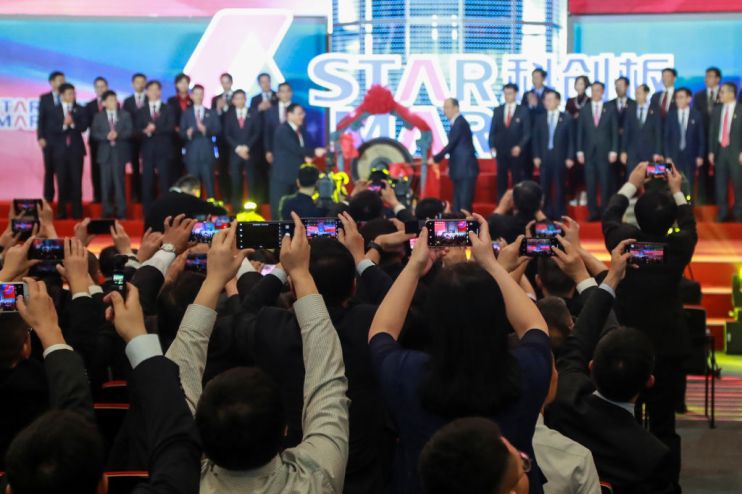China’s Nasdaq rival Star Market see shares surge on first day of trading

Shares shot up on the launch of China’s new Nasdaq rival – the Star Market – today.
Shanghai Stock Exchange’s tech-focused stock market aims to use Shanghai’s credentials as a global financial hub as a springboard to success, with 25 firms listed on it already.
Read more: Google terminates Project Dragonfly, its censored Chinese search engine
Collectively the firms pulled in more than $5.4bn on their first day of trading.
Semiconductor business Anjo Microelectronics Technology’s shares soared over 400 per cent in early trading, and went as high as 520 per cent.
Meanwhile battery test equipment firm Zhangjiang Hangke Technology saw shares rise over 120 per cent.
On average the 25 stocks climbed 160 per cent by midday in China, turning a number of company owners into billionaires at least temporarily.
The surge came from China’s strident state propaganda to push up the market on its debut, according to analysts.
“I don’t think such gains can last long,” Ronald Wan, chief executive of Partners Capital International in Hong Kong, told CNN. “It’s way too speculative.”
President Xi Jinping first unveiled the Star market in November as China seeks to further grow its burgeoning tech sector.
China hopes Star can accelerate the value of its tech companies by attracting local investment and woo back its biggest digital giants, namely Alibaba and Tencent.
Alibaba is listed in New York and Tencent in Hong Kong.
China hopes its companies can become less dependent on foreign capital amid an ongoing trade war with the US.
President Donald Trump has imposed huge tariffs on Chinese exports, and has blacklisted Huawei – one of China’s biggest smartphone and networking firms – just as countries put lucrative 5G contracts out to tender.
Read more: Chinese growth slows to 27-year low amid US trade war
Of the 25 firms listed on the Star market, 24 are making their stock market debut. The Star market allows firms losing money to list, and includes chipmakers, battery firms, and suppliers for high-speed railways.
More than 100 firms are on a waitlist to join the new stock market, Shanghai Stock Exchange said.